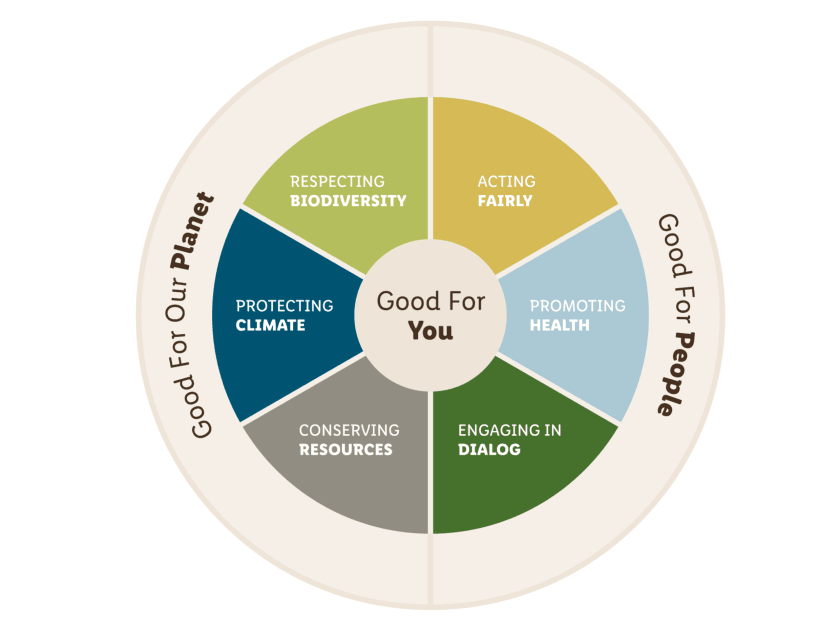Lidl operates in the highly competitive grocery retail market, characterized by thin margins and intense rivalry. Supermarkets face pressure from significant changes in consumer preferences, namely the rise of convenience. Trends towards fast food and ready to eat meals threaten to eat into the traditional grocery retail market. In fact, nearly half of consumers in the Netherlands already order food via online delivery services, demonstrating an appetite for digital convenience. At the same time supermarkets are expected to push for ambitious CSR goals. Under the motto of “Good for Our Planet”, “Good for People” and “Good For You” Lidl has committed to six core promises.

Source: https://info.lidl/en/responsibility
In order to remain competitive and drive further growth, Lidl must work towards enhancing its discount model with additional value. The Lidl Plus app already integrates a digital component into the core shopping experience. However, competitors from adjacent industries already offer more advanced digital platforms, highlighting a threat of disruption.
Lidl possesses proprietary customer data from its over 100 million users, using it to optimize its private label offering, discounts and operational efficiency, in line with the core promise of “highest quality for the lowest price”. This highlights a clear strategic gap. Looking to the future, Lidl has to further leverage this data in order to close the digital gap and push ahead.
Recent GenAI innovations offer a strategic opportunity to address the aforementioned challenges.The proposed solution is LidlChef, an AI powered recipe and meal planning assistant, seamlessly integrated into the Lidl Plus app. LidlChef’s core value proposition is more personalisation, affordability, and sustainability for the everyday food shopping experience.
LidlChef integrates a transformer-based LLM that acts as an intelligent meal-planning assistant. Taking into account a user’s purchase history and currently available ingredients, the system generates personalized recipes. Whether prioritizing organic ingredients, a vegetarian dish, a meal for an entire family, or religious food preferences, the flexibility of GenAI helps plan the right meal for everyone. With the help of computer vision models the app enables users to effortlessly keep track of their food inventory. By prioritizing ingredients based on expiry dates, LidlChef helps households reduce their food waste, supporting the promise of “conserving resources”.

For users this reduces the “what-to-eat” stress and mental load of meal planning. By encouraging them to prioritize healthier food choices, the app directly supports the promise of “promoting health”.
The revenue model is primarily indirect, but delivers a significant financial impact. The system is designed to generate value by increasing the likelihood of customers buying complementary items suggested by recipes, driving an increased basket size and greater share-of-wallet. Those additional features strengthen customer loyalty, reduce churn, and encourage more frequent shopping.
In conclusion, the integration of GenAI turns Lidl Plus data into a valuable, inimitable, and non-substitutable resource, ultimately strengthening Lidl’s long-term competitive position in the evolving digital grocery retail landscape.
Team 7: Marlou Boerkamp, Michael Grameiser, Henri Lemmen, Yuval Peled
